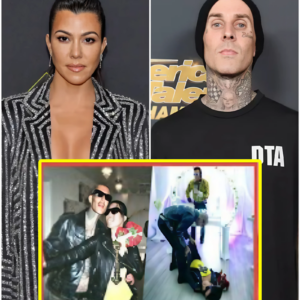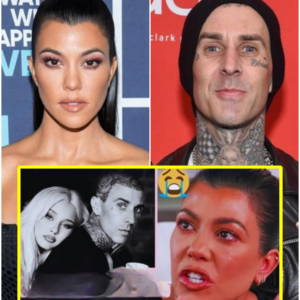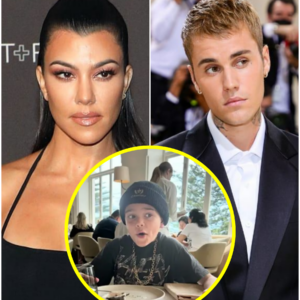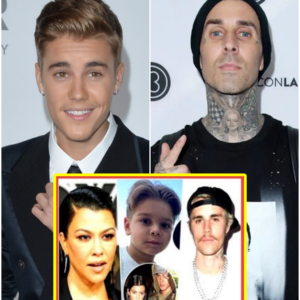Recently, Busta Rhymes has found himself in the spotlight, not for his music, but for the controversial allegations about his private life. This wave of scandal began when a former bodyguard claimed Busta made unusual requests about men in his VIP section. Furthermore, Orlando Brown and 50 Cent have insinuated that Busta is hiding a secret lifestyle. This revelation has opened a Pandora’s box of accusations from men who allege inappropriate advances from Busta.
The issue at hand is not merely about Busta’s alleged orientation but about the hypocrisy and abuse of power within the music industry. There have been instances of Busta displaying homophobia, such as the 2006 incident reported by the New York Post, where he lashed out at a male fan using a slur. In 2007, Busta abruptly left an interview when asked about bisexuality in hip-hop, indicating a deep-seated discomfort with the topic.
These allegations bring to light a larger issue within the hip-hop community, where the facade of machismo often hides complex personal struggles and hypocrisy. Busta’s alleged behavior contradicts his public stance, suggesting a possible internal conflict and fear of societal backlash. This duality is harmful, not just to Busta but to the wider community, as it perpetuates a culture of silence and violence.
Wendy Williams was among the first to shed light on the secretive nature of certain hip-hop personalities, including Busta. Wendy’s shows in the early 2000s frequently touched upon the hidden lifestyles of rappers, leading to significant backlash. Wendy’s revelations about Busta and others hinted at a deeper, systemic issue within the industry.
Busta’s rumored connection with Diddy adds another layer to this complex narrative. Both have faced accusations of maintaining a tough public image while allegedly engaging in secretive behaviors. Their relationship has been scrutinized, with some sources claiming they shared similar interests, further complicating the narrative of their public personas.
The allegations against Busta also include claims of violence against both men and women. His aggressive outbursts have been documented over the years, painting a troubling picture of a man struggling with his identity and projecting his frustrations onto others. This behavior not only tarnishes his reputation but also reflects poorly on the hip-hop community.
This controversy underscores the need for a broader conversation about authenticity, acceptance, and accountability in the hip-hop industry. The industry’s machismo culture often forces individuals to hide their true selves, leading to destructive behaviors. For hip-hop to evolve, it must embrace diversity and encourage openness.
In conclusion, the allegations against Busta Rhymes serve as a stark reminder of the underlying issues within the hip-hop community. While the public persona of toughness prevails, the private struggles of these individuals often tell a different story. It’s time for the industry to address these contradictions, promoting a culture of acceptance and honesty. Only then can the true essence of hip-hop, rooted in self-expression and authenticity, be fully realized.
News
(B) Travis Barker MISSED when Kourtney Kardashian returned home drunk after Kardashians party. (VIDEO)…
Courtney Kardashian made headlines just seven weeks after giving birth when she decided to attend the annual Kardashian Jenner Christmas party sans pants. Despite recently welcoming her fourth child, Rocky, with boyfriend Travis Barker, Courtney seemed anything but tired as…
(B) Kourtney Kardashian Shocking Revelation on Why Her Relationship with Travis Barker Ended. (VIDEO)…
In the public eye, Travis Barker and Courtney Kardashian’s relationship was once perceived as an unbreakable union, filled with passion and devotion. However, recent revelations paint a vastly different picture, revealing the underlying turmoil that ultimately led to its demise….
(B) Kourtney Kardashian SECRET XTAPE With Minor Justin Bieber REVIEWED by The Feds. (VIDEO)
The recent discovery of a video purportedly featuring Courtney Kardashian and Justin Bieber has ignited a firestorm within the entertainment industry, prompting intense speculation about its potential ramifications. This revelation, coupled with reports of a raid on Diddy’s home, has…
(B) EXTREMELY SHOCKING: Kris Jenner Lied About DNA Test To Khloe Kardashian As O.J. Simpson Could Be Her Father. (VIDEO)..
In a moment etched into the memories of internet users, Chris Jenner once orchestrated a dramatic DNA test to dispel rumors surrounding Khloe Kardashian’s paternity. Speculations swirled, stemming from Jenner’s revelations in her memoir “Chris Jenner and All Things Kardashian,”…
(B) Kourtney Kardashian finally shows proof her son Reign Disick is actually Justin Bieber’s son. (VIDEO)..
Courtney Kardashian recently embarked on an exciting escapade to Australia and New Zealand with her husband, Travis Barker, for his tour. However, it was their youngest son, Rain, who stole the spotlight during their adventures. With his mischievous antics and…
(B) NEWS HOT; Travis Barker Found Evidence of Kourtney Shared Baby With Justin Bieber (video)…
The rumor mill surrounding Justin Bieber and the Kardashian family has been churning for quite some time, igniting speculation about his connections with various members. While the details are murky and often sensationalized, let’s delve into the complexities of these…
End of content
No more pages to load











